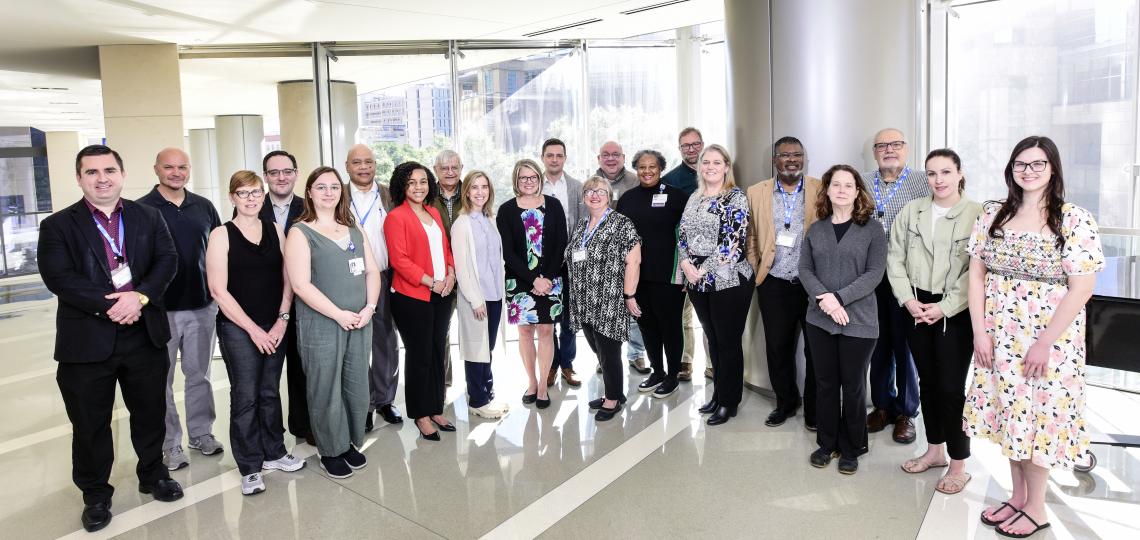The Center for Medical Ethics and Health Policy partners with Houston Methodist to offer the five-day virtual Intensive Bioethics Course in the Texas Medical Center. The course is productive, engaging, and covers fundamental bioethics topics and advanced clinical ethics skills.
Course Dates
The five-day virtual course is scheduled for April 7-11, 2025.
Overview
This unique course emphasizes learning-by-doing with a practical and clinically based focus. Its learner-centered model enables sessions to be customized to individual needs for people who want more background and skills in clinical ethics consultation.
Bioethics Intensive Course Agenda
Download the 2025 Bioethics Intensive Course Agenda.
Fees
Fees for the virtual 2025 course are listed below. Several discounts are available, including an early bird discount for attendees who register by Feb. 14, 2025.
Need-based scholarships are available to cover the course fees. To be considered for the scholarship please submit the following: (1) a letter explaining your interest in the course and why you are unable to secure funding from an employer/program (2) a CV. Scholarship applications should be emailed, along with accompanying documentation, to klfrumov@bcm.edu. Applications are due by February 18, 2025.
| General Registration | |
| Register by Feb. 14 | $1,400 |
| Register after Feb. 14 | $1,600 |
| Trainee Registration(Resident/Fellow/Student) | |
| Register by Feb. 14 | $1,000 |
| Register after Feb. 14 | $1,200 |
| Employee/Affiliate Employee Registration (BCM/HMH/BSLMC/CHI) | |
| Register by Feb. 14 | $1,000 |
| Register after Feb. 14 | $1,200 |
| Three or more participants from one institution* | |
| Register by Feb. 14 | $1,200 |
| Register after Feb. 14 | $1,400 |
Who Should Attend
- Individuals who regularly encounter complex ethical challenges in the healthcare setting and wish to receive advanced training
- Anyone interested in getting certified in health care ethics consultation
- Past participants are from all over the country with diverse backgrounds including: physicians, nurses, social workers, chaplains, patient advocates and patient representatives, risk managers, hospital administrators, and healthcare attorneys
What Other Ethics Consultants Say About the Course
- “The course delivered everything we expected and more.”
- “All I can say is I wish I had known about this course years ago! Outstanding and brilliant!”
- "Impressive credentials of faculty and speakers.”
- "Information was comprehensive and exactly what I needed.”
- “Great course and I have already recommended it to my colleagues.”
- “The breadth, expertise of speakers, energy of delivery, and attention to the needs and hopes of participants resulted in an outstanding conference.”
Course Objectives
Upon completion of this course, participants should be able to:
- Identify five (or more) common ethical challenges or topics arising in patient care
- Develop ethically reasoned and practical strategies for addressing these ethical challenges
- Identify five (or more) approaches or strategies for navigating complex cases, including tips on mediation and facilitating family meetings
- Identify the procedural elements that every ethics consultant should undertake as part of his or her routine consultative activities for most (if not all) ethics consultations
Direct and Successful Outcomes
- Scored 4.9 out of 5 on fulfillment of the stated learning objectives
- Scored 4.7 out of 5 on overall course quality from participants surveyed
- 95 percent of participants stated they learned information that could be implemented into their clinical practice









